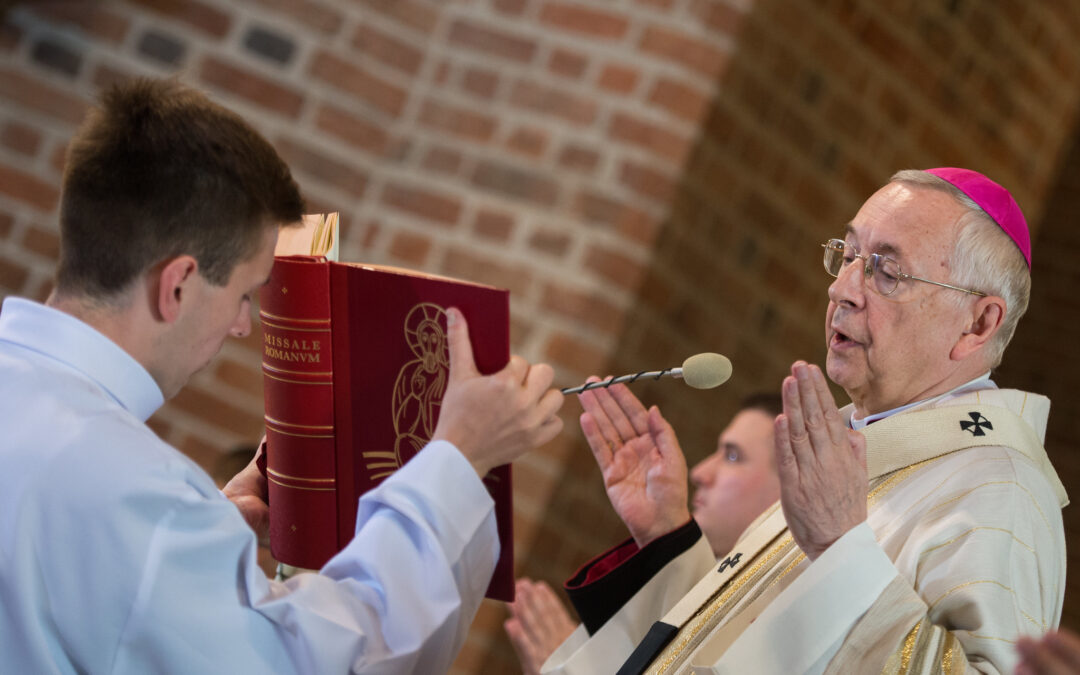The head of Poland’s Catholic episcopate has appealed for migrants and refugees to be treated humanely and without stigmatisation, amid a surge in attempted crossings across the border from Belarus by people from the Middle East, Africa and Asia.
Another senior bishop has criticised the government for publicly presenting images of pornography featuring animals and children found on a device belonging to one of the border crossers. This helps promote immorality rather than combat it, he warned.
“The Catholic church cannot cease to recall that the words of Jesus – ‘I was a stranger and you welcomed me’ – remain valid at all times and in all circumstances,” wrote Archbishop Stanisław Gądecki, the president of the Polish Episcopal Conference (KEP), in an appeal published today.
“Medical and humanitarian aid for migrants should be a priority for both the state and non-governmental organisations,” he continued. “The inalienable dignity of every human being, regardless of their status, origin or religion, and the law of brotherly love, urge us to help them.”
While Gądecki accepted that “it is the duty of the authorities to uncover potential threats posed by people trying to cross state borders”, he added that one “cannot stigmatise arrivals and make unfair generalisations that ‘every refugee is a potential terrorist'”.
Last week, Poland’s government presented material taken from the devices of border crossers that it said indicated a significant proportion of them have extremist views and even terrorist links. Some experts have, however, cast doubt on the evidence. Critics accuse the government of seeking to stigmatise migrants more widely.
Among the evidence presented at the government’s press conference, which was broadcast live on public television, were graphic (but censored) images of child and animal pornography purportedly taken from the device of one border crosser.
Asked about the decision to show those pictures, Archbishop Wojciech Polak, the Primate of Poland, said that he “does not understand the purpose”. By publicly displaying “immoral and criminal behaviour…we become its promoters, instead of fighting it”, he told Interia.
Polak also criticised “harmful simplifications” that seek to “suggest that every refugee is a terrorist or a sex offender”. While there is an “obligation to defend state borders”, we must also “help people who find themselves in a dramatic situation, even if they are being used for political manipulation”.
In his appeal today, Gądecki called for the establishment of humanitarian corridors that can provide “help to the victims of war and persecution in a safe and fully controlled manner”. He also appealed for “controlled relocation of refugees…as opposed to chaotic migration”.
The government this year evacuated over 1,000 Afghans from Kabul, who are now being settled in Poland. At the same time, however, it has taken a tough stance on preventing uncontrolled and illegal crossings, by erecting a razor-wire fence and pushing migrants back into Belarus.
These measures have faced criticism from opposition politicians and human rights groups, who have also condemned the state of emergency on the border, which bans media and activists from accessing the area.
The government, however, argues that it has an obligation to protect the country’s borders and prevent illegal crossings, which it notes are being orchestrated by the Belarusian government. It also claims to have the EU’s support for its approach.
Main image credit: Mazur/catholicnews.org.uk (under CC BY-NC-ND 2.0)

Daniel Tilles is editor-in-chief of Notes from Poland. He has written on Polish affairs for a wide range of publications, including Foreign Policy, POLITICO Europe, EUobserver and Dziennik Gazeta Prawna.




















